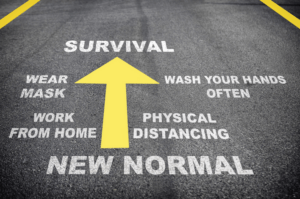
How does a small business survive when cash flow has been diminished to a level that most are businesses are affected?
The government’s Paycheck Protection Program (PPP) was designed to give businesses a boost and keep them sustainable while community-wide lockdowns persist.
But even that was tenuous. When it was released in early April, the race was on to apply, and many businesses didn’t submit their documents in time. Money ran out, and some big-name small businesses like Shake Shack and Ruth Christ returned the loan when they realized smaller firms didn’t receive the funding.
Now that the federal government has approved a second round of funding of the program, many businesses may likely receive these loans designed to pay employees.
Who qualifies for the Paycheck Protection Program?
The following businesses qualify: small companies with fewer than 500 employees, nonprofits, independent contractors, sole proprietors, independent contractors and even self-employed individuals who have been in operation since February 2020.
How much can your business receive?
How much your business receives depends on payroll and other expenses in 2019. It’s good to have your 2019 taxes submitted or at least completed. This SBA loan will cover two months of payroll plus costs. A good accountant should be able to help do the math quickly.
What expenses does the PPP loan cover?
Payroll, commission, tips, paid vacation, parental leave, medical and sick leave, insurance premiums, retirement benefits, local and state tax assessments, employee compensation, an allowance for dismissal or separation.
What expenses are not covered?
Here’s what is not covered: employee and owner compensation over $100,000 or the salary of staff who live outside the U.S.
Is the Paycheck Protection Program a forgivable loan?
Yes, but only if you use it for its intended purpose: payroll, health care benefits and other approved expenses.
When should you apply?
You can apply anytime between now and June 2020. The sooner, the better. The money ran out once; there’s a good chance it will again.
Note to our readers: Please contact the Winston Law Firm for legal advice and a free consultation.

